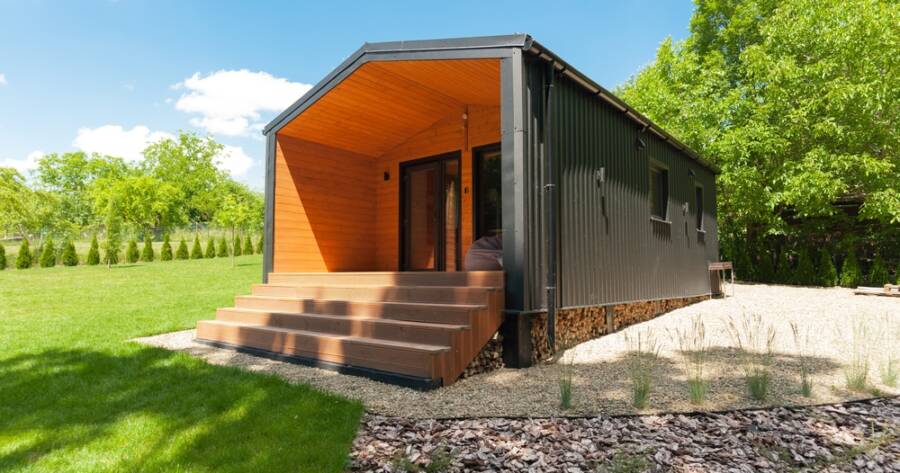Modular homes are an adaptable and potentially more affordable housing option. Constructed off-site and then assembled on location, these homes offer flexibility and modern design possibilities. Could modular homes be the right choice for you?
What Are Modular Homes?
Modular homes are constructed in sections, or modules, within a controlled factory setting.1 Once completed, the modules are transported to the desired site for assembly. Unlike traditional construction, this process can be more efficient, as weather delays are often avoided. Additionally, modular homes can offer high levels of customisation, allowing buyers to design a space that suits their needs. While it may sound like a newer concept, modular housing has been around for decades, evolving with advances in building technology.
Why Modular Homes May Be a Good Option
One of the main advantages of modular homes is the speed of construction. Since the modules are built in a factory, the overall process tends to be quicker than traditional builds. This could make it easier to complete a home without the long wait associated with conventional methods. Additionally, there may be fewer on-site construction fees, as much of the work is done elsewhere. Modular homes might also appeal to those looking for an eco-friendly option, as factory construction tends to generate less waste. Furthermore, modular homes could be more energy-efficient due to stricter factory-controlled building standards.
Are Modular Homes Affordable?
Modular homes are often a budget-friendly alternative to traditional homes, but the cost will depend on various factors.2 While they might reduce some expenses — typically, the house itself and construction are less costly — other costs could still arise. Buyers need to consider land acquisition, site preparation, and transportation fees for the modules. It’s also worth noting that the level of customisation can influence the overall price. For those seeking high-end finishes, the price of a modular home might rival that of traditional construction. As with any major investment, potential homeowners should carefully compare prices and options.
Design Flexibility in Modular Homes
When it comes to customisation, modular homes may offer a great deal of flexibility. The factory-based process allows for a variety of floor plans and design options. Whether you’re seeking a modern, open-plan layout or something more traditional, modular homes can be tailored to meet different tastes. However, customisation will depend on the manufacturer and the specific model chosen. It is important to research the available options and ensure the design can accommodate your lifestyle needs. While modular homes can be adapted to fit individual preferences, not all manufacturers will offer the same level of personalisation.
Potential Drawbacks of Modular Homes
As with any housing option, modular homes come with potential drawbacks. One of the main concerns is the availability of land. In densely populated areas, it might be difficult to find a suitable plot at a reasonable price. Additionally, transporting the modules to the site could incur high fees, particularly if the location is remote. Another consideration is financing, as some lenders may be unfamiliar with modular construction, leading to fewer mortgage options. Finally, while modular homes may be energy-efficient, their resale value may fluctuate based on location and local market trends.
Learn More Today
Modular homes are an innovative and flexible solution for those looking to customise their living space. While they offer many benefits, such as quicker construction times and potential cost savings, buyers should carefully evaluate all associated fees. With the right approach, modular homes could be an ideal fit for a wide range of needs. However, it’s essential to research thoroughly and consider the long-term value before committing.

